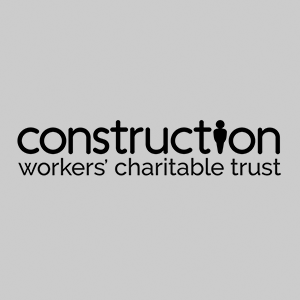
Mates in Mind and Institute of Employment Studies - The impact of poor mental health on self-employed construction workers
London-based charity Mates in Mind teamed up with the Institute of Employment Studies (IES) to propose a ground-breaking new initiative focused on the mental health of self-employed tradespeople and those working for smaller businesses in the construction industry.
Download the report ‘Supporting the mental health of self-employed construction workers’
They’ve proposed a four-step plan to learn more about the pressures on the mental health of an estimated one million ‘hard to reach’ people either working for themselves or for small and micro construction businesses. The research cites that, whilst an increasing number of employed workers in construction have access to mental health support, a large proportion of self-employed construction workers have access to no such support and remain vulnerable. Very little is known about their support needs nor the best ways to reach them.
Mates in Mind and IES also identified that the fallout from the coronavirus pandemic may only have increased pressures on those working within the industry, with risk of suicide within this sector already being higher than the national average. Data suggests that 97% of construction workers felt stressed at least once in the last year and that 26% had considered taking their own lives in 2019.
The four-step plan
- Investigate the extent of the problem within the targeted section of the industry – a desk-based exercise looking at recent literature on the mental health needs of the self-employed, examples of successful interventions to engage self-employed people in construction, and data to help develop a short online questionnaire.
- Develop a questionnaire designed to gauge the levels of poor mental health – to look at the sources of support and advice already used by self-employed workers, capture data on their preferences for information support, and gauge perceptions of mental health to inform on relevant interventions. The questionnaire will also highlight those willing to participate in subsequent interviews.
- Produce a qualitive research programme with selected workers – a selection of up to 10 survey respondents will be asked to participate to further explore the drivers of mental health, sources of work pressure, distress and anxiety. Coping mechanisms which trigger help-seeking behaviour will also be explored.
- Publish a report – summarising both the extent of the issue within the target group and how it can be tackled. It’ll aim to specify a number of support methods which may include education, online or written information, self-help material, crisis support or peer support. This published report will be made available to the wider industry and it’s also hoped that at least one support tool will be developed on the back of it.
Success factors
Mates in Mind and IES envisage 5 measures of success for the project. First, new evidence of the mental health support needs of self-employed construction workers. Second, practical options for reaching this group with tailored information and support. Third, positive responses from survey and interview participants to some of these support methods. Fourth, a clear specification for at least one mental health support tool which can be piloted in a future study. And finally, publication and wide distribution of the final report across the construction sector.
While there’s an unmet need for mental health support among self-employed construction workers, this need has not been quantified or specified. The best and most reliable methods of reaching this group remain unclear. So, this project aims to shed important light on these questions and find ways of providing practical guidance which will be accessed by an important but hard to reach group.


